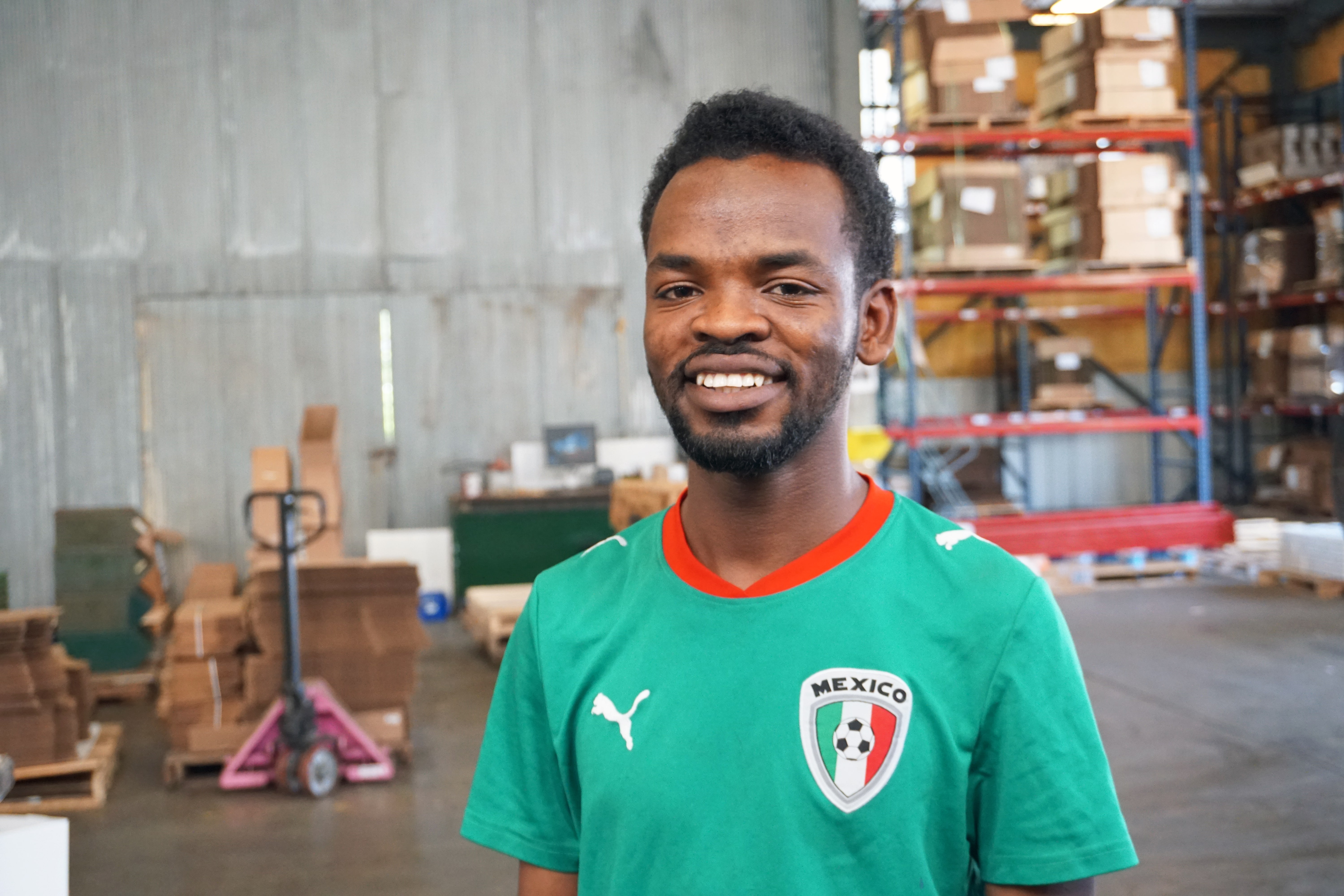The odds have never been in his favor, but perhaps that is why he will succeed. From a very young age, Souleyman developed the ability to adapt well to strife, and instead of letting it take him down, he uses it to his advantage. His story, almost unbelievable, begins with a very scared little boy, and as each obstacle presents itself, this boy endures.
As we sit down to talk, I notice how much he smiles. His positivity is disarming, as if he is preparing me to hear his story that will no doubt be a hard listen. We begin with light conversation about running on the track team at Johnson County Community College, and I ask him why he runs.
“I like to run to clear my mind. Sometimes when I think about what has happened, it can be too much…,” his smile lowers and his eyes begin to water. With a quick wipe of his eye, he says, “but I can run and think about a problem and feel better.”
I feel the first pang of heartbreak for him in the first 60 seconds of our conversation. It won’t be the last. We move straight into the moment he became a refugee.
His life began in the city of Nyala, Sudan, and moved to a small village outside the city limits with his parents, grandparents, and two siblings. He is the middle child, in between his older sister and younger brother. He is six years old in 2003.
“At 3 or 4 in the morning, when everyone is asleep, my grandfather wakes us up and says he sees men coming on horses and camels, and so he goes from house to house to tell everyone. When people start waking up and looking outside, that is when the men start shooting.”
The men he is referring to are a militia group commissioned by the Sudanese government call the Janjaweed. They target villages outside of cities, mercilessly shooting people and livestock, and plundering anything of value.
In the commotion of the attack, Souleyman’s younger brother is lost. He is only four or five years old, and the family is desperate to find him. His mother goes straight into action. She takes one trip back to the village and does not find him, but her determination is unrelenting. She gathers up supplies and vows not to return until she has found her son.
It took her two days, but she was able to locate him and a couple other young boys separated from their families. She found them under a tree near a pond where the water had been poisoned by dead bodies – a tactic the Janjaweed had employed to ensure no one survived after an attack. She recuperates them with fresh food and water, then makes the trek back to safety.
Souleyman mentions that his family is surprised that he can recall so much from this event in his life, but unfortunately the trauma was too great to forget.
“Sometimes when I think about this, it feels like it is happening again. Before, I used to think about it all the time, and now, day by day, it’s not as bad.”
Witnessing unthinkable murder and living in complete panic was already more than any one person should endure, however, repeated hardship set the tone for Souleyman’s journey as a refugee. His family survived the attack on their village, but now face extreme poverty trying to live in the city.
Things go from hard to worse almost immediately when his family is split up. He and his younger brother stay with their grandparents at an unofficial refugee camp outside of Nyala, and his sister will go with his parents to an established refugee camp across the border in Chad.
Souleyman is left with the disturbing reality that he may never see his parents again.
——————————
The next part in this series details Souleyman’s childhood as he faces life without his parents, and the many moments he overcomes hardship.
In the meantime, catch up on the stories you’ve missed: More Than A Refugee: An Introduction and More Than A Refugee: Zaki’s Story


